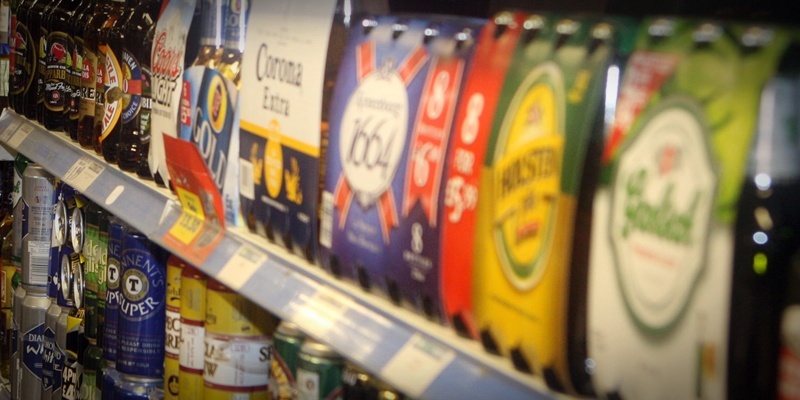Alcohol should be banned from supermarkets as part of a crackdown on harmful drinking, a leading Tayside doctor has told MSPs.
Dr Peter Rice, chairman of the Royal College of Psychiatrists in Scotland, made the controversial suggestion as he gave evidence to the Scottish Parliament’s health committee on Tuesday.
He said it would be ”desirable” for Scotland to follow the example of countries such as Canada, where sales are limited to government-sanctioned stores.
Dr Rice, consultant addictions psychiatrist at NHS Tayside, said: ”The United Kingdom is unusual in that all of our alcohol is sold alongside all of our groceries. The move would lead to the setting up of closely regulated ‘liquor stores’, which would be the only outlets allowed to sell spirits and other strong alcoholic drinks.”
He added: ”The UK has been very out of step with the rest of the world over the last 20 years. I was asked in New Zealand: ‘why is vodka sold in supermarkets in the United Kingdom?’ I’d never thought about that question before.”
Dr Rice said state-operated boards in parts of Canada and the US lead to the ”democratic control” of the alcohol market.
He said: ”I think that would be a very desirable thing for us to have in this country. We should not lose sight of the fact that other countries do this sort of thing perfectly successfully, whereas we have a very free and deregulated market for alcohol.”
But Dr Rice, who was giving evidence to MSPs investigating the Scottish Government’s plan to set a minimum price for alcohol, admitted the move was unlikely to win public support.
However, he reiterated his backing for minimum pricing, describing it as the ”best realistic prospect” of getting to grips with Scotland’s alcohol problem.
He also highlighted the worrying case of an alcoholic he had treated at his Dundee clinic recently.
He said the patient drank around 40 units a day of strong cider that was sold for less than £1 a litre a situation Dr Rice said demonstrated the need for minimum pricing.
He said: ”Right across the whole range of medical practice there has been a consensus that there needs to be some kind of price control, and particularly price controls that secure the floor price.
”Many of my medical colleagues are seeing what we’re trying to do as a model to follow.”
The SNP’s first attempt to pass the legislation was blocked in the last parliament before the party gained its overall majority.
Health Secretary Nicola Sturgeon has not revealed where the minimum level will be set but has used 45p to illustrate the plan.
The formula would put the cost of a 700ml bottle of 37.5% ABV spirits at £11.82. A 500ml can of super-strength 9% beer would be £2.03.
Dr Rice said the 45p limit would now be out of date, suggesting the floor should be set closer to 60p per unit and potentially adjusted twice a year.
The committee heard support for minimum pricing from other panel members, including Anne Ludbrook, professor of health economics at Aberdeen University, and Dr Jan Gill, reader at Queen Margaret University.
Alcohol Focus Scotland chief executive Dr Evelyn Gillan said Scotland was in the grips of a liver disease ”epidemic” due to the prevalence of cheap alcohol.
But Benjamin Williamson, senior economist at the Centre for Economics and Business Research, argued minimum pricing would cause problems for business and is ”unproven” as a way of tackling alcohol abuse.
